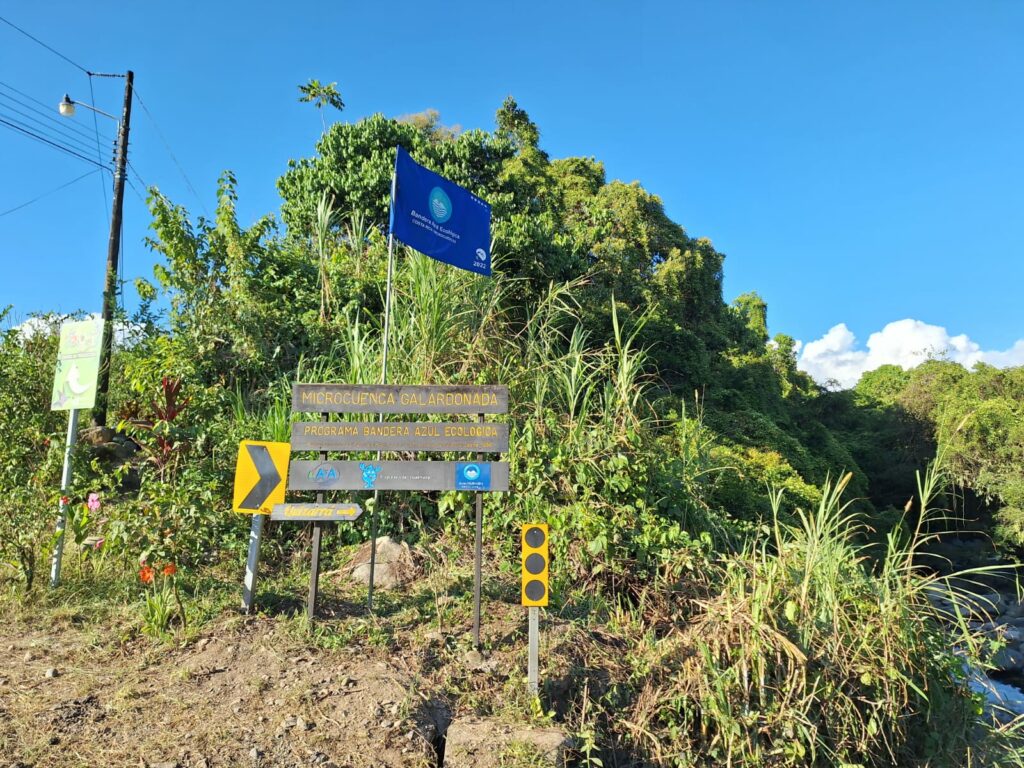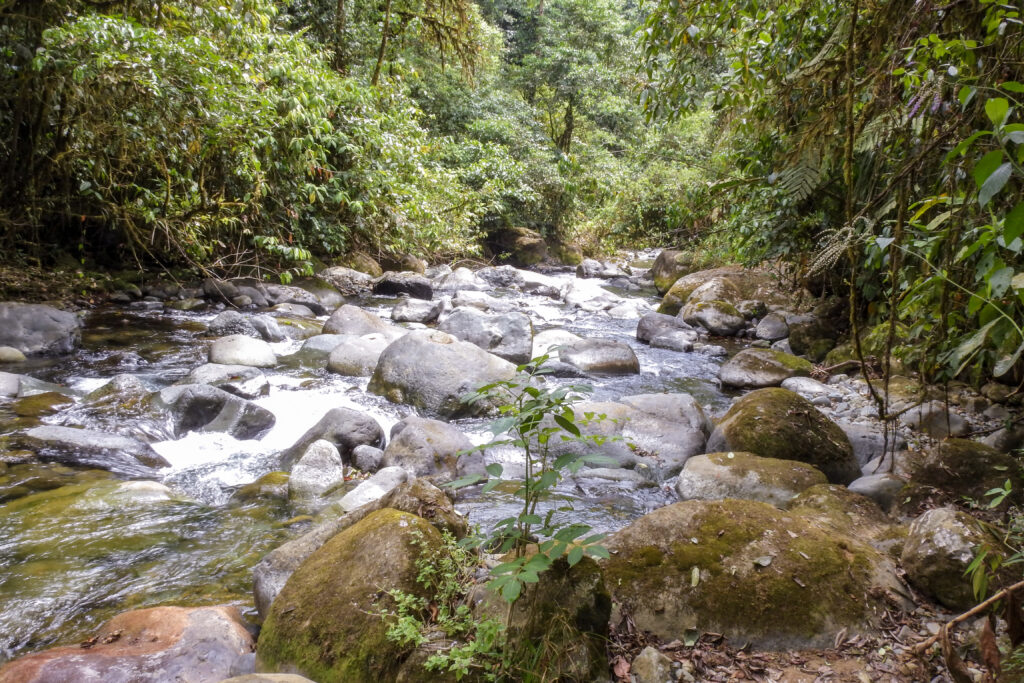On March 12, 2024, Casita Azul received the highest award level of five stars as part of a prestigious local ecological prize, acknowledging their significant contribution to recent clean-up efforts at the Peñas Blancas River in Costa Rica.
Building on their established connections within the community, and their recently implemented, successful bi-monthly recycling program, Casita Azul joined local efforts to advance UNSDG 6: Ensuring availability and sustainable management of water and sanitation for all by cleaning-up the Peñas Blancas River as part of Costa Rica’s Blue Flag Ecological Program, Bandera Azul Ecológica.
The Blue Flag Ecological Program evaluates beaches and waterways yearly on a variety of aspects with the purpose of seeking conservation and expanding sustainability efforts. Evaluation metrics include monthly reporting of the microbiological quality of seawater; water quality for human consumption; sanitary quality of coasts; and the implementation of environmental education, among others.
What started as a program to inspire cleaner beaches in 1996 quickly moved inland within six years to non-coastal communities like those that surround York University’s Las Nubes Eco-Campus and Casita Azul Library in Costa Rica to promote the protection of natural surroundings and increasing public knowledge via fostering healthy competition.
Natural progression of their efforts of spreading awareness on environmentalism, sustainability, and conservation in the Alexander Skutch Biological Corridor (COBAS) led to Casita Azul working closely with Los Cusingos Bird Sanctuary at the Tropical Science Centre, ASADA (a local water association) and CONUBI (Conociendo Nuestra Biodiversidad).
Recognizing the importance of sustained commitment, Casita Azul continued community engagement and environmental education beyond the recycling campaign they first co-implemented in December 2021 by conducting regular meetings with the local population. The resounding success and bi-monthly continuation of the recycling campaign highlighted continued dialogue within the community around sustainable living and how to instil eco-conscious habits. These programs prioritize drawing attention to the value of biodiversity and protecting against its loss under the UNSDG 15 umbrella.
From coordinating volunteers for the recycling program, to advertising the community clean-up efforts and inspiring participation through monthly educational sessions on biodiversity and sustainability in local classrooms, Casita Azul is an integral part of their surrounding community and helped to satisfy the Blue Flag Ecological Program metrics for the river to qualify for this award.
“We are on the ground, doing the work. We are organizing recycling campaigns, keeping schedules, making promotional materials. We are inciting and inspiring people to show up to the cleanup sessions and to literally get their feet wet. We encourage everyone to go in the river and do this work because the river is a feeder for all the communities and especially for their farms,” says Dana Craig, teaching and learning librarian at York University Libraries.
Tom Scott, senior scholar, adds, “while we’ve been historically more involved in the education and awareness building of the community, we became more involved with the physical clean-up process as well.”
Integrating not only themselves, but ecological values into the community of COBAS has proven to be a success for Dana Craig, Tom Scott and other working members of Casita Azul and the Las Nubes eco-campus. Casita Azul’s synchronous harmony when working with local organizations has allowed the biological corridor to reap the benefits of a cleaner, sustainable source of freshwater.
Casita Azul is a place for community engagement and education where York University students and researchers can connect, learn with and from local communities. Education and activism work together to conserve and restore the freshwater ecosystem without compromising existing ways of life.


